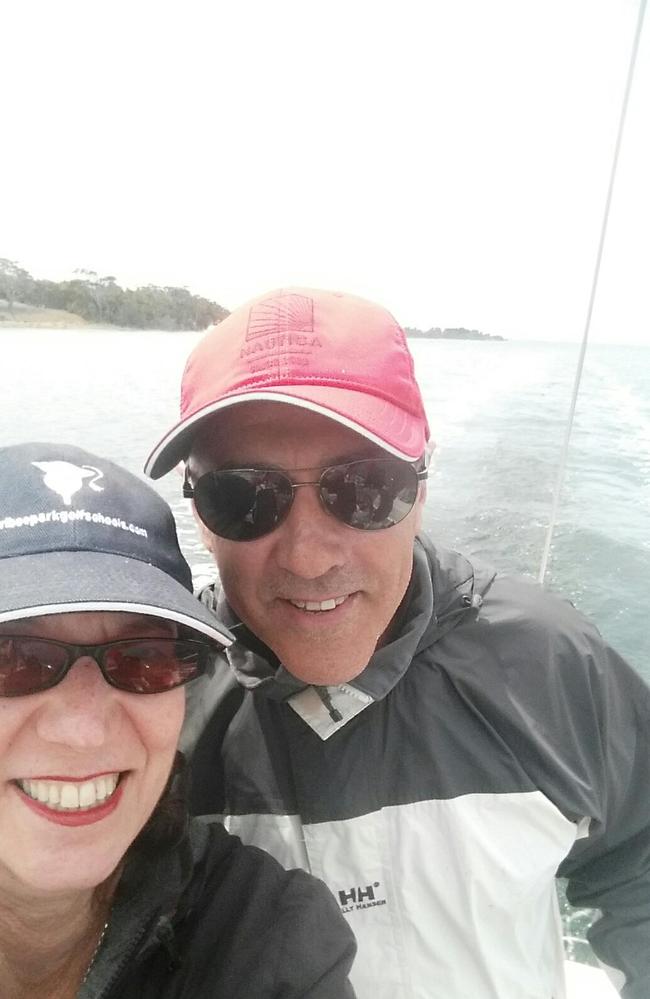Multiple sclerosis: First oral drug for secondary progressive MS approved in Australia
Maria Lentini was in the prime of her life when she suddenly lost her vision in one eye. What she found out next floored her.
It was a morning like every other the day Maria Lentini suddenly lost vision in one of her eyes.
The mother-of-two, from Point Cook in Victoria, had been getting ready for the day in October 2008 when her vision went “totally black”.
“It was just in one eye, my right eye,” she told news.com.au. “I couldn’t see anything.”
After initially hoping the problem would fix itself but didn’t, the next day Mrs Lentini went to her GP, who referred her to an eye specialist.
The specialist gave her a course of steroids that restored her eyesight but ordered more tests be done.
Then just a week later, Mrs Lentini, now 56, was given the news – she had multiple sclerosis (MS).
“I was devastated, I was completely devastated, because I thought, how can I have MS?” she recalled. “I was walking and talking and I’m not in a wheelchair, what’s going on?”
The diagnosis came as a “real shock” to Mrs Lentini and her family, as she had never suffered a major illness.
“I had been just going along normally. My kids were in high school, my eldest son at the time was in year 12, my daughter was doing year 10,” she said.
“I was healthy, I hadn’t had any illnesses throughout my life at all.”

MS is typically diagnosed after a person experiences a sudden appearance of MS symptoms, such as vision impairment or numbness, which last more than 24 hours.
“There’s about 25,000 Australians with MS. It’s much more common in women and it usually starts between the ages of 20 and 40 years of age, so often when people are in the most productive phase of their life,” Monash University Associate Professor Anneke van der Walt,
a neurologist and head of MS treatment at Melbourne’s Alfred Hospital, told news.com.au.
Mrs Lentini has relapsing remitting MS, which is the most common type of MS. However, nearly half of people with relapsing remitting MS will see it eventually develop into a more aggressive form.
“What can happen is about 40 per cent of (people with) relapsing remitting MS after a few decades – 20, 30 years on average – people can develop secondary progressive MS,” Dr van der Walt said.
RELATED: ‘You don’t die from MS, you die with it’
“Secondary progressive MS is diagnosed when someone with MS develops a persistent and worsening neurological symptom that is there for six months.”
Treatment options for secondary progressive MS have been limited until November when the first oral drug to treat it was approved by the Therapeutic Goods Administration.
A submission has been made for Mayzent to be added to the Pharmaceutical Benefits Scheme, and the drug’s inclusion would mean significant change to the lives of Australians with secondary progressive MS.

There were 12 types of drugs to treat relapsing remitting MS but none specifically for secondary progressive MS, Dr van der Walt said.
“The options were for them to stay on whatever treatment they were on already for relapsing remitting MS and hope that that might have an effect,” she said.
“But for many people, that dose treatment would have been stopped because we are required by the PBS to stop treatment if people become (diagnosed with) secondary progressive MS … it would have meant that their medication would have been stopped and there would have been no treatment option.”
For people with relapsing remitting MS like Mrs Lentini, finding out there is a new drug available for secondary progressive MS is reassuring.
“The more sorts of treatments are offered the better because no two patients are alike, so what might suit one person won’t necessarily suit the next,” she said.
More than 10 years on from first being diagnosed, Mrs Lentini is yet to have another severe episode but struggles with lethargy and loss of movement down one side of her body.
RELATED: Inside Multiple Sclerosis, the invisible disease

“With me, particularly, MS and heat don’t go together. I won’t go out somewhere that doesn’t have airconditioning because I that know if I do I risk having a relapse caused by the heat,” she said.
Mrs Lentini manages her MS symptoms by slowing down and resting on tough days, while her two children and husband also help her as much as they can.
“Everybody pitches in. That’s one thing that changed when I was diagnosed – the kids were suddenly happy to help out with the housework and help prep meals,” Mrs Lentini said with a laugh.
“My husband is the best house husband you could find. He does the vacuuming, he does the washing up.”
Mrs Lentini said being diagnosed with MS had also made her not take life for granted. Soon after she was diagnosed, Mrs Lentini and her family took the holiday of a lifetime to the US to visit relatives.
“(My husband) always used to say, ‘Can we go, can we go overseas?’, and I would always say, ‘No we can’t afford it, no we can’t afford it’,” she explained.
“But then after the diagnosis it made me realise life is too short to say you can’t afford it. You really have to do what you can when you’re well enough to do it because nobody knows what’s around the corner.”




